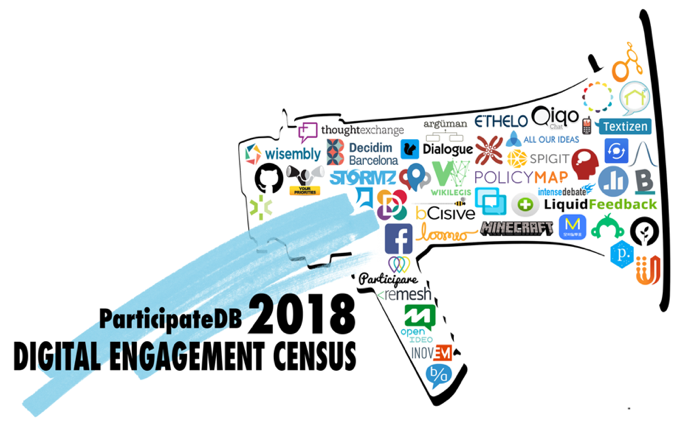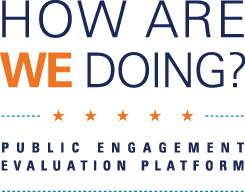The 8-page article, Democracy by Design (2014), by Nancy Thomas was published in the Journal of Public Deliberation: Vol. 10: Iss. 1. Thomas puts forth, Democracy by Design, which offers the framework for evolving democracy into one that is more robust and truer to the core tenets of the concept of democracy. This framework has four major foundations in order to have a better democracy: active and deliberative public participation; freedom, justice, and equal opportunity; an educated and informed citizenry, and; effective government structures. It was co-created by Thomas, the Democracy Imperative, Deliberative Democracy Consortium, the Campaign for Stronger Democracy, the Kettering Foundation, Everyday Democracy, CIRCLE, and the New England Resource Center for Higher Education.
Below is an excerpt from the article and you can find the PDF available for download from the Journal of Public Deliberation site here.
From the article…
American democracy works better when all citizens (referring to residency, not legal status) possess the knowledge, skills, social networks, and inclination, and have the opportunity, to address difficult public problems together.
In this essay, I make the case for connecting the kind of public engagement reviewed in this Special Issue with a broader reform agenda, what I will call Democracy by Design. It is a pragmatic and relatively simple framework for a robust democracy, consisting of four foundations: active and deliberative public participation; freedom, justice, and equal opportunity; an educated and informed citizenry, and; effective government structures. The language “by design” suggests a framework for democracy, not just disconnected mechanics, intentionally crafted and integrated for positive social consequences. I developed this concept, captured in the graphic below, as a road map for undergraduate education for democracy. Exploiting Thomas Huxley’s adage “learn something about everything and everything about something,” I propose that college students (and all Americans) should learn this framework or a version of it to fulfill their obligation to know “something” about how democracy works. And by the time they graduate, college students should know “everything” about at least one dimension of one of the four foundations (one “small box”).1 Democracy by Design is a work-in-progress, open to discussion, critique, and improvement.

Active and Deliberative Public Participation
Much has been written about the so-called crisis in civic life and the decline of social capital, of associations, trust, and norms that enable public problem solving. Robert Putnam’s compelling image of Americans “bowling alone” rather than in leagues captured concerns over declining engagement in faith communities, nonprofits, PTAs, labor unions, and the like. He and many others rallied civic leaders, policy makers, and educators and arguably spurred an industry concerned with measuring and improving civic life. Emerging around the more localized civic renewal efforts, grass-roots problem solving, such as the healthy communities movement and local crime prevention efforts. Old organizations (e.g., fraternal orders and women’s leagues) were replaced with issue-driven coalitions (e.g., child advocates and immigration organizations). Alongside these efforts and deeply embedded in the best of them has been deliberative democracy—informed citizens with diverse life experiences and perspectives coming together, exchanging viewpoints, deliberating choices, and collaboratively implementing fair solutions, with and without government involvement.
…
The challenge may be in knowing when to employ more deliberative versus more active approaches, or, stated another way, when to remain neutral. On this point, I would argue that advocates of public participation should never be neutral about the foundations of a robust democracy.
Freedom, Justice, and Equal Opportunity
Freedom to prosper and freedom from an overly intrusive government seem well-understood in American society, but I question whether the same holds true for other core American principles of justice and equal opportunity.
…
Power dynamics may persist because the dominant culture has projected its particular way of seeing social and political norms and systems so successfully that that view has become the natural order, even by those disempowered by it (Tong, 1989). This problem is stickier than overt oppression, individual bigotry, or discrimination. As a result, well-meaning people maintain the status quo, usually unconsciously, by going about their business without realizing the implications (Adams, et. al. 1997, 11).
We can’t be neutral about giving people an equal opportunity to participate in and shape the social, political, and economic systems that affect their lives. Advocates for active and deliberative engagement need to be attentive to power dynamics, structural inequality, and unconscious privilege. If we don’t, we risk becoming those well-meaning people who unconsciously perpetuate the status quo.
An Educated and Informed Citizenry
Few people question the value of quality public education, liberal and civic learning, free speech, an impartial press, and an attentive citizenry able to examine and critique information. Unfortunately, our public education system is not educating for citizenship.
…
Deliberation advocates lament their inability to get to scale, to make active and deliberative public participation the norm in American society. Imagine how much easier that task would be if students at all levels learned through discussion. Discussing controversial issues emerged in CIRCLE’s research as a high impact practice in civic learning at the K-12 level (Kawashima-Ginsberg, 2013). And studies show that students learn better through inquiry and discussion (McKeachie, 1994; Hess, 2009, 18). Everyday citizens without expert knowledge are capable of public reasoning. The task of engaging citizens would be easier if Americans developed the habits of active and deliberative citizens while in school and college.
Effective Government Structures
We need to change the way campaigns are financed, restore transparency and accountability to government, and flip power back to American citizens. At a conference in June 2014, Bob Brandon of the Fair Elections Legal Network lamented, “We have a system in which politicians select their voters rather than voters selecting their politicians.” Gerrymandering, long lines, registration problems, poorly formatted ballots, suppression efforts, and money in politics persist despite the tireless efforts of reform advocates. Only about half of eligible voters actually vote in federal elections (roughly 60% in presidential elections and 40% in mid-term elections).
Download the full article from the Journal of Public Deliberation here.
About the Journal of Public Deliberation
 Spearheaded by the Deliberative Democracy Consortium in collaboration with the International Association of Public Participation, the principal objective of Journal of Public Deliberation (JPD) is to synthesize the research, opinion, projects, experiments and experiences of academics and practitioners in the emerging multi-disciplinary field and political movement called by some “deliberative democracy.” By doing this, we hope to help improve future research endeavors in this field and aid in the transformation of modern representative democracy into a more citizen friendly form.
Spearheaded by the Deliberative Democracy Consortium in collaboration with the International Association of Public Participation, the principal objective of Journal of Public Deliberation (JPD) is to synthesize the research, opinion, projects, experiments and experiences of academics and practitioners in the emerging multi-disciplinary field and political movement called by some “deliberative democracy.” By doing this, we hope to help improve future research endeavors in this field and aid in the transformation of modern representative democracy into a more citizen friendly form.
Follow the Deliberative Democracy Consortium on Twitter: @delibdem
Follow the International Association of Public Participation [US] on Twitter: @IAP2USA
Resource Link: www.publicdeliberation.net/jpd/vol10/iss1/art17/
 To kick off the first week of the Local Civic Challenge, we want you to learn more about the ins and outs of your city government! That includes how it operates, who’s involved, and ways you can give feedback. Once you’re done, you’ll be more familiar with how the system works, and you might even have some ideas on the ways things could be improved.
To kick off the first week of the Local Civic Challenge, we want you to learn more about the ins and outs of your city government! That includes how it operates, who’s involved, and ways you can give feedback. Once you’re done, you’ll be more familiar with how the system works, and you might even have some ideas on the ways things could be improved.








